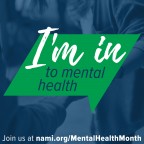How the Missed College Lecture Nearly Killed Me

“The key to keeping your balance is to know when you’ve lost it.” I don’t know who said that, but knowing I had lost my balance in life was the turning point in learning to live with bipolar disorder and multiple sclerosis. Unknown to me as an undergraduate nearly a half-century ago, I had both incurable neurological diseases. Most disorders have obvious symptoms, but mine were hidden working like a computer virus destroying a marriage, a career, and ultimately leaving me living alone, in poverty, and planning suicide.


















